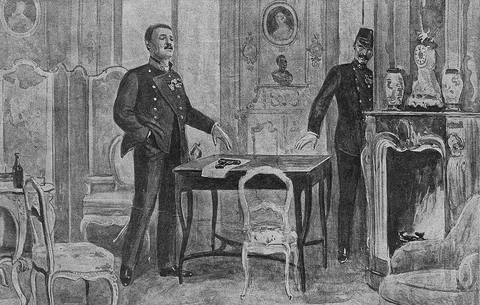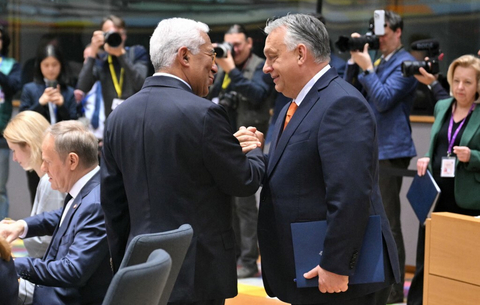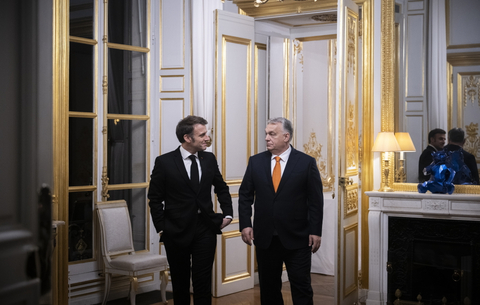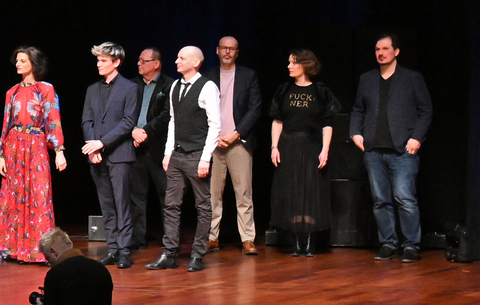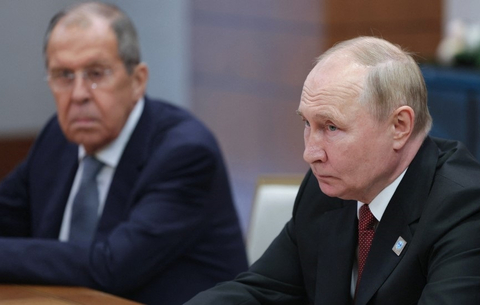Firing on the flagship
The storm over the Financial Times's Hungarian supplement continues. Fidesz published its advert about the supplement in December. Now it is asking for a special parliamentary committee to be established. The FT was supposedly to be excluded from the affair, but it somehow found its way in. They have now written a strange letter to London. They continue to attack the Gyurcsány government. But what does the supplement actually say?
Fidesz politicians alleged that not only was the six-page supplement paid for by the Hungarian government, but that articles signed by individual journalists were bought too. The FT protested.
Fidesz placed adverts in several Hungarian dailies saying Ferenc Gyurcsány had paid the Financial Times HUF20m to write that Hungarians live better today than ever before. Can we still believe him, they asked. Thereafter, they issued a press release reassuring foreign correspondents working in Hungary that the recent scandal related "not to their work, but to the behaviour of the government."
Fidesz's letter to the FT was published on Friday. In it, Tamás Deutsch wrote: "We do not and have never doubted the objectivity and professionalism of the papers's editors and correspondents." Fidesz's argument was with the government and certain of its members. But it is hard to square the circle by accusing the government of using taxpayers' money to have biased articles placed in the FT - in cooperation with the FT, in fact - whilst reassuring the editors of the London paper that they have no problem with the paper. Especially if, as Deutsch has written, the paper's staff made two allegations about Fidesz and Orbán which "disregard fundamental rules of journalism - obtaining correct information and listening to the other side."
The fires were stoked by an article headlined Postmodern Times in the conservative newspaper Magyar Nemzet on Wednesday. "The credibility and legendary independence of the flagship of global capital, the Financial Times (whose very name signifies a marriage of time and money) collapsed when they came into contact with the government of Ferenc Gyurcsány," wrote János Csontos, one of the Magyar Nemzet's leading columnists. He continued: Gyurcsány had knowingly lied in Parliament when he had "presented as independent commentary articles that had been paid for out of taxpayers' money." The conclusion: the government had placed its own propaganda in a foreign forum.
So what is all this about? We doubt whether colleague Mr Csontos or any of the Fidesz leaders have actually troubled to flick through those six pages. Had they done so, they might have been more careful.
Kester Eddy wrote four of the articles in the supplement. Six were written by Christopher Condon. Mr Condon reports from Budapest. Mr Eddy roves between Budapest, Bucharest and Ljubljana. In his article "Battle for power boils down to a two-man show," for example, Mr Condon wrote: "Mr Gyurcsany, although a successful businessman, was before that a communist youth leader. He married the grand-daughter of Antal Apro, an infamous Communist party official from the 1940s and 1950s. The couple live in a villa seized by the communists and, effectively, given to Mr Apro, although the Apro family has legally purchased it from the state. For some Hungarians, this is ancient history. But to many, it is powerful symbolism. Mr Gyurcsany, they argue, represents a brand of opportunist who has capitalised on the injustice and corruption of the old communist structure. Even his business success in the 1990s is seen as the product of socialist-era connections." Maybe we need to get our eyes tested, but this passage does not strike us as stemming from the pen of a government-hired hack.
And what is the writer suggesting in the same FT article when he asks whether Orbán or Gyurcsány is more likely to carry out needed economic reforms? "Diplomats, business leaders and analysts tend to take a long pause before attempting an answer and are ultimately divided. As a former businessman and a fan of the UK Labour government's Third Way, Mr Gyurcsany inspires more confidence among some. Others favour Mr Orban, who ran what many considered a highly responsible fiscal policy for most of his four years as prime minister from1998 to 2002, before abandoning it in the run up to the last election." The article quotes John Nicols, the British ambassador as saying that whoever wins the election will require "a healthy does of political courage." It is clear: the article has been measured down to the last centimetre to ensure that the writer cannot be accused of bias. The same goes for the other articles.
Even the sentence Csontos quotes means something different if translated in its entirety. "Despite the dangerous economic imbalances, Hungarians - on average - live better than ever." The writer or writers (this is the only unsigned article) drew this conclusion from Ecostat figures. In 2000, Hungarian GDP per capita was at 52 per cent of the EU average, last year it was at 62 per cent. The average could of course conceal enormous poverty if it is counterbalanced by a rich elite. This observation, and the interpretation of the figures, can be criticised. But to conclude that "flagship of global capital," founded in 1888 and with annual revenues of £208m, would be prepared not just to take adverts, but to abandon its traditions and editorial policy by manipulating its own articles - and all this for HUF20m (£55,000) - this would seem to be a bold conclusion.
Maybe the problem is precisely what the Magyar Nemzet columnist accused Gyurcsány of: a skewed perception of reality.
Richárd Hirschler
